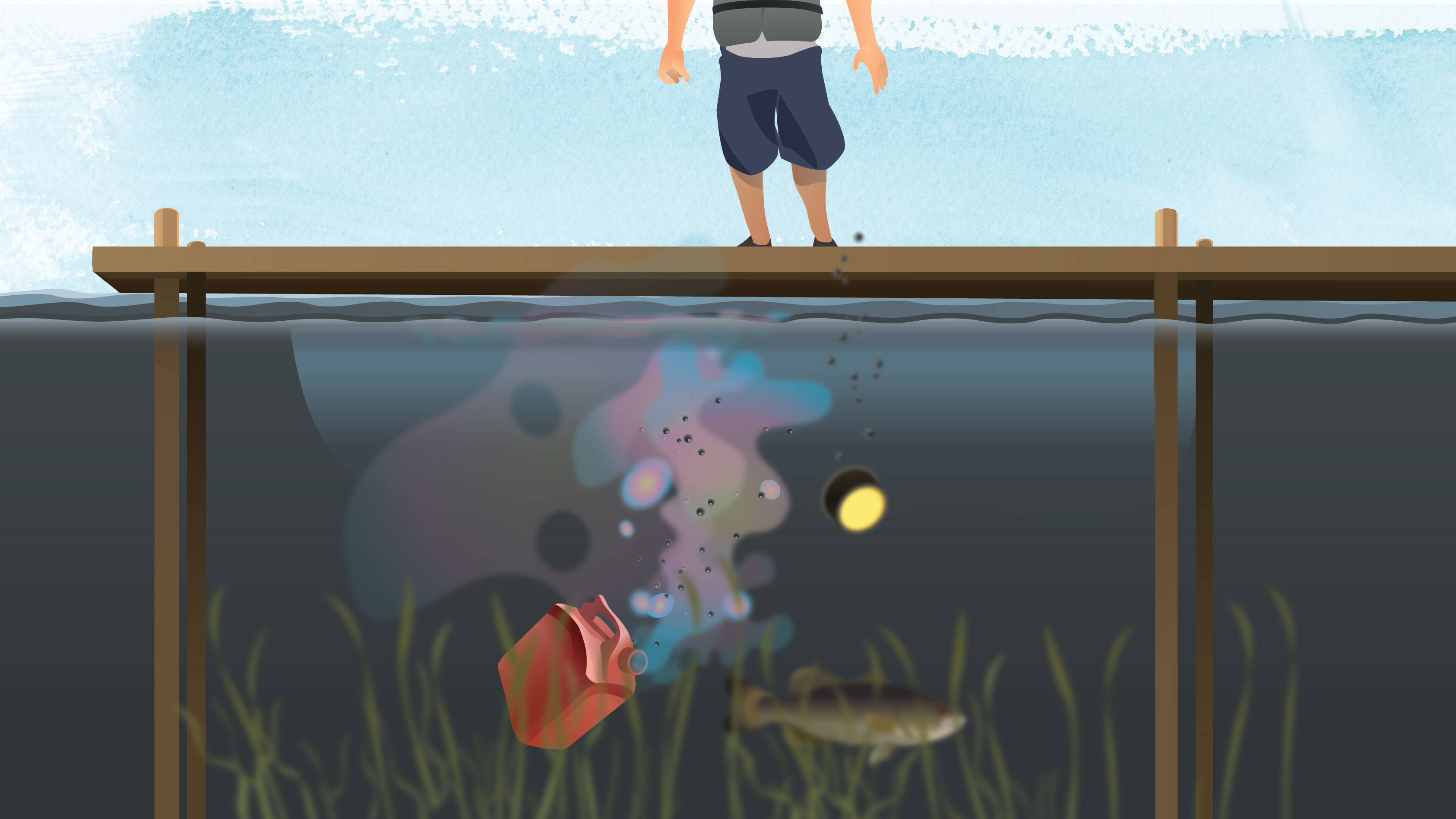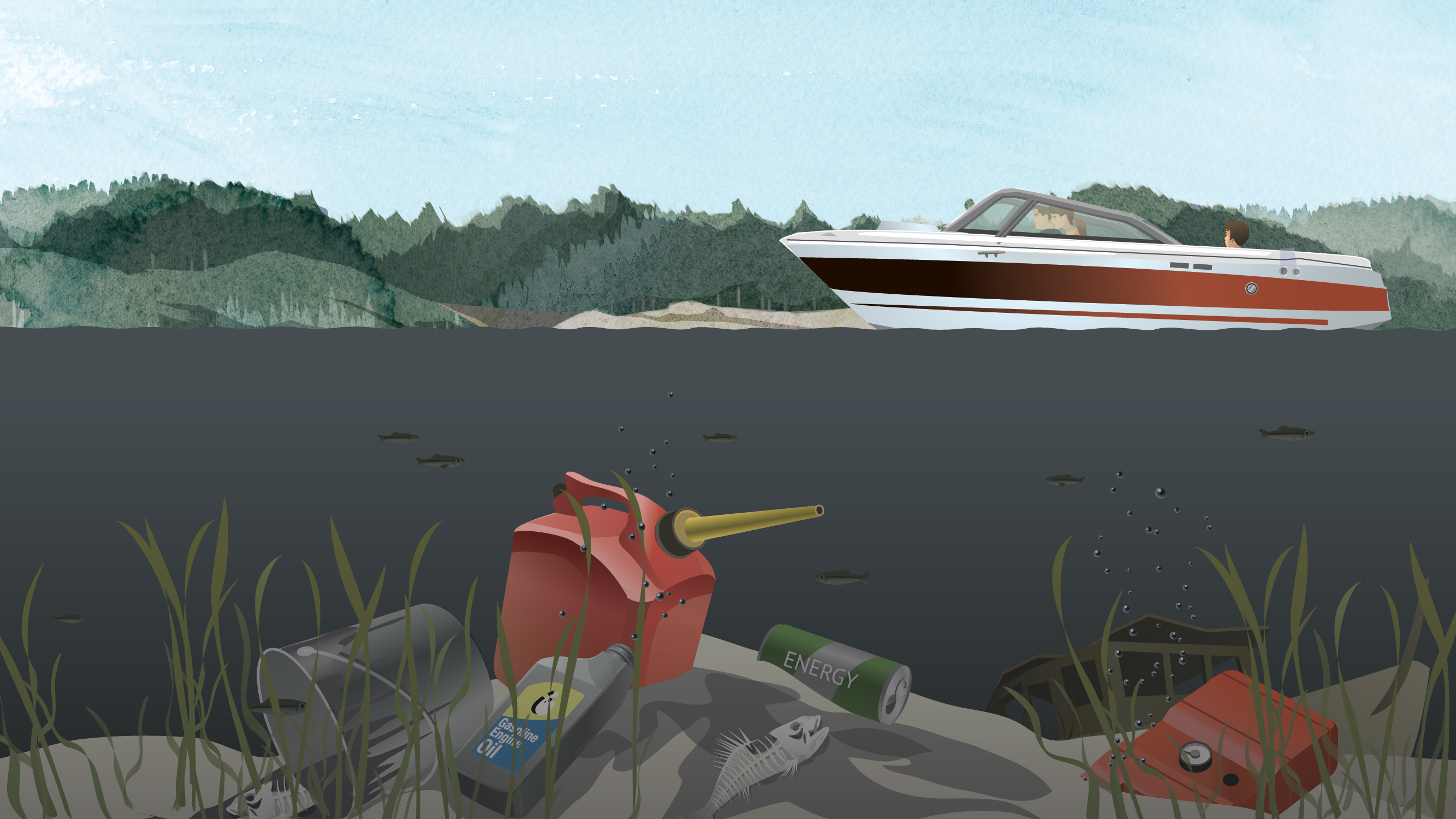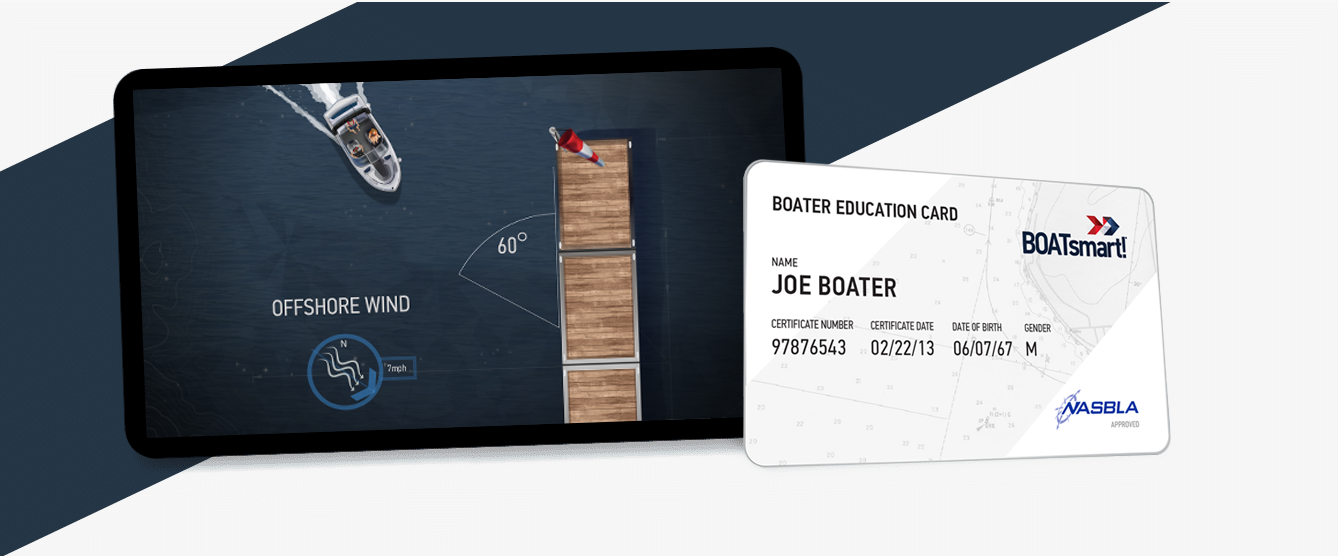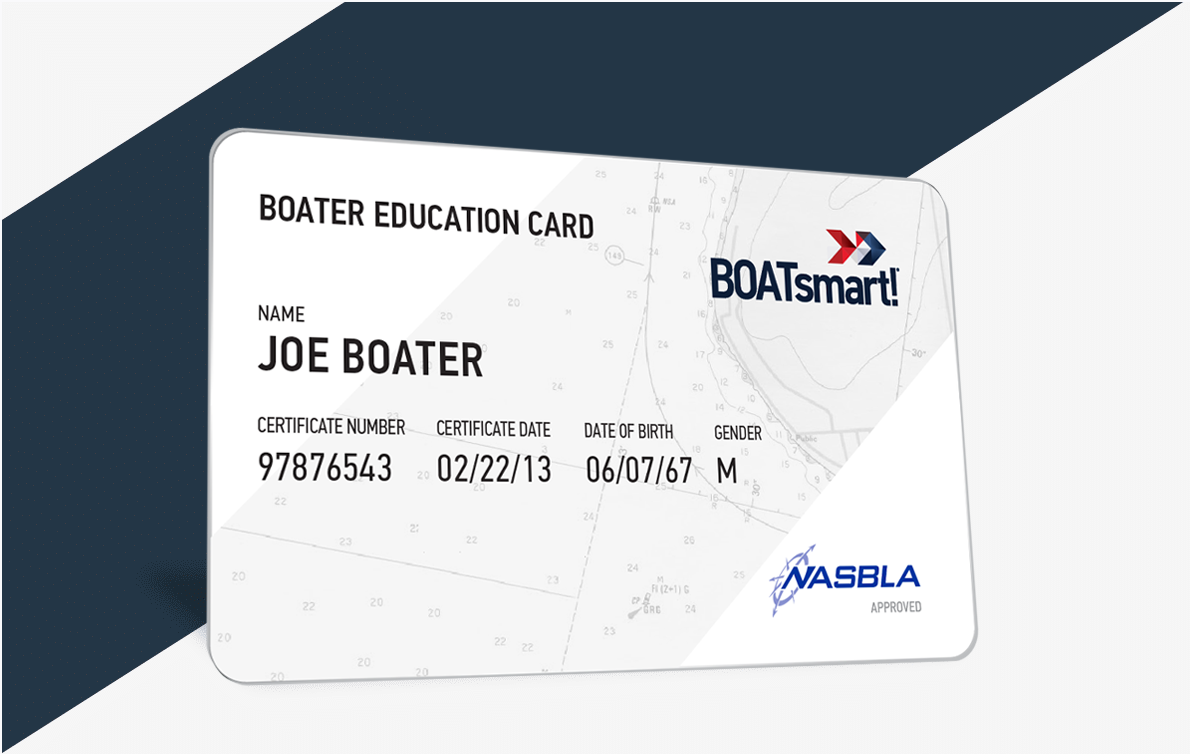BOATsmart! USA Knowledge Base
Module 04 - Safe Responsible Boat Operation
The Disposal of Toxic Substances
The Federal Water Pollution Control Act prohibits the discharge of oil or hazardous substances into U.S. waterways. All boats with fuel-powered engines are required to keep oils or toxic waste on board the boat and the operator must keep the hazardous waste in a fixed or portable container until it can be disposed of at a proper reception facility. Oil discharge can build up easily in the bilge of a boat and can be discharged into the water just as easily. Always handle hazardous substances with extreme care.
To safely contain hazardous substances, you must have one of the following devices on board:
- A bucket or;
- Oil absorbent pads or;
- A heavy-duty plastic bag or;
- A bailer or portable pump

Reporting Spills and the Illegal Discharge of Waste
You must report if a pollutant (such as oil or hazardous cleaning products) is released from your boat into the water. Call the U.S. Coast Guard toll-free at 1-800-424-8802 and be prepared to report the following information to the National Response Centre:
- The location of the release.
- The source and cause of the release (if one is known).
- The amount of waste released (an estimate).
- A description of the waste (color, odor, consistency, etc.).
- The actual substance that was released (if known).
- The date and time of the release.

Penalties for the Improper Disposal of Toxic Substances
If you’re found guilty of discharging toxic substances from your boat, you may face a civil penalty of up to $125,000. Additionally, if you fail to notify the Coast Guard of an illegal discharge, you may face criminal penalties, including a prison sentence of up to five years.


Get your Official North American
Boating License
The Official NASBLA and State-Approved Boating Course, Test & License.
Get your Official North American
Boating License
The Official NASBLA and State-Approved Canada Boating
Course, Test & License.



